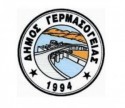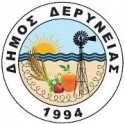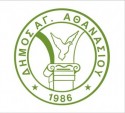The Commission welcomes today’s political agreement reached by the European Parliament and EU Member States on the Commission’s proposal for post-2020 on the European Regional Development Fund (ERDF) and the Cohesion Fund (CF). This is the fourth file related to cohesion policy where trilogue negotiations are concluded, pending the final approval of the legal texts by the European Parliament Plenary and the Council.
Commissioner for Cohesion and Reforms, Elisa Ferreira, said: “I welcome today’s political agreement on the European Regional Development Fund and the Cohesion Fund. The agreement allows Member States and regions to support a socially and territorially balanced development of Europe’s regions while at the same time improving the quality of life of our citizens, especially those from disadvantaged or marginalised areas. This political agreement frames what can be supported and prioritised within the two funds. The closure of the negotiations allows the finalisation of the programmes and their quick start, which is particularly important during the economic crisis caused by the pandemic. I encourage national authorities to fully associate regional and local authorities as well as economic and social partners to this key step, which occurs every seven years. It provides a precious opportunity to build a wide agreement among all partners on the path to the recovery and resilience of our regional communities on renewed and more solid grounds.”
With a budget of close to €234 billion (in 2018 prices), the European Regional Development Fund and the Cohesion Fund regulation will enable investments in a smarter, greener, more connected, more social Europe that is closer to its citizens. This legislation will allow the EU to respond to current challenges by boosting sustainable development and resilience in European regions and communities.
The funds will support, in particular, investments in innovation and entrepreneurship, the digital and green transition and transport networks.
They will also aim at leaving no one behind thanks to the financial means available for providing access to quality health, educational and cultural services, for integrating migrants and for tackling social exclusion.
The main elements of today’s compromise include:
- areas of investment of the ERDF to contribute to a smarter, greener, more connected and more social Europe that is closer to its citizens;
- thematic concentration of the funds on European priorities for a green (30% minimum for all), digital and innovative EU;
- scope of support to guide investment on the ground;
- enhanced focus on territories with development challenges, such as rural areas, areas in demographic decline or with natural handicaps;
- dedicated resources for sustainable urban development (8% of the ERDF allocation);
- European Urban Initiative – a new tool for streamlining existing support streams made available by the Commission to cities and towns (knowledge, capacity building and innovation);
- Interregional Innovative Investment – a new initiative that will bring regions working together to develop excellence in research and innovation;
- scope of support of the specific additional financial allocation addressing the needs of the outermost regions.
Next steps
Following the political agreement of 10 November 2020 between the European Parliament, EU Member States in the Council as well as the Commission on the next long-term EU budget and NextGenerationEU, the legal adoption of the Multiannual Financial Framework (MFF) Regulation, the NextGenerationEU regulation along with the amendment of the Own Resources Decision is now urgently needed.
Once adopted, the EU’s long-term budget, coupled with the NextGenerationEU initiative, which is a temporary instrument designed to drive the recovery of Europe, will be the largest stimulus package ever financed through the EU budget. A total of €1.8 trillion will help rebuild a post-coronavirus Europe. It will be a greener, more digital and more resilient Europe.
Background
On 29 May 2018, the European Commission published a set of legislative proposals for EU cohesion policy post-2020, including a proposal for a Regulation on the post-2020 European Regional Development Fund and the Cohesion Fund. The ERDF’s main objective is to strengthen economic, territorial and social cohesion in the European Union by correcting imbalances between its regions. The CF aims to contribute to projects in the field of environment and trans-European networks.
For More information
The European Regional Development Fund and Cohesion Fund
EU cohesion policy action against coronavirus
Cohesion Open Data Platform and COVID-19 dashboard
2021-2027 long-term EU budget & Next Generation EU
Press contact
· Vivian LOONELA
Phone
+32 2 296 67 12
· Veronica FAVALLI
Phone
+32 2 298 72 69





